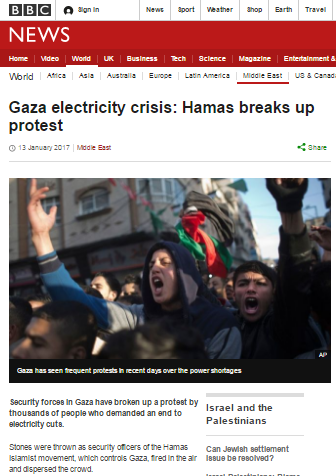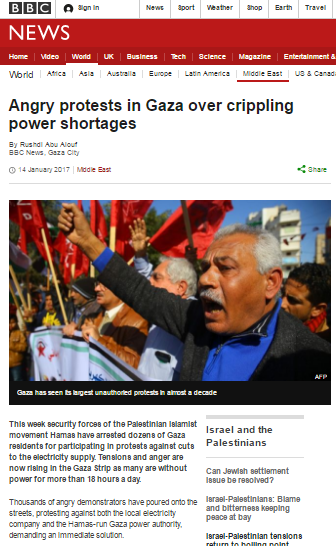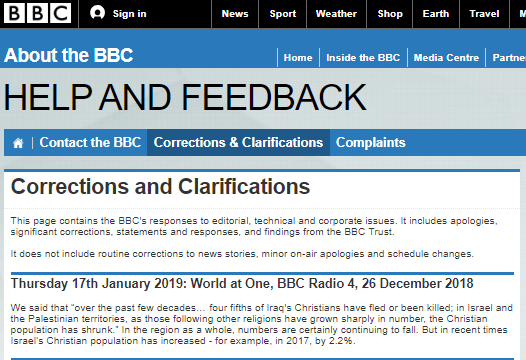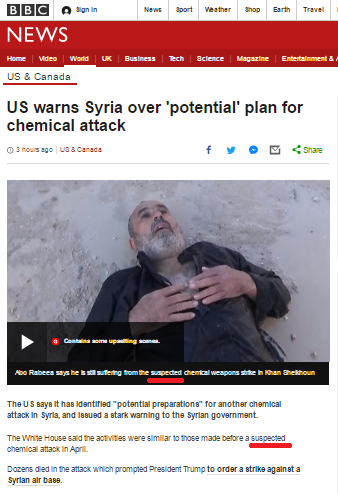As has been documented here on several occasions, the BBC has over the years repeatedly misinformed audiences on the topic of the causes of the chronic electricity shortage in the Gaza Strip.
That power crisis prompted demonstrations in September 2015 which went unreported by the BBC, as did Israeli efforts to ease the shortage.
A recent exacerbation of the crisis brought about more demonstrations by Gaza Strip residents and this time the BBC News website produced two reports on the topic:
‘Gaza electricity crisis: Hamas breaks up protest‘ – January 13th
‘Angry protests in Gaza over crippling power shortages‘ – Rushdi Abu Alouf, January 14th
But did the BBC finally get round to giving its audiences full and accurate background information concerning the reasons why residents in the Gaza Strip only have a few hours of electricity a day in these two reports? In the first article readers were told that:
“Locals now get just four hours of power per day, instead of eight-hour cycles.
A vital plant was badly hit in fighting with Israel in 2014, but financial troubles and inter-Palestinian tensions have also contributed to the crisis.”
In fact, (and despite several inaccurate BBC reports to that effect which have remained uncorrected for two and a half years) Gaza’s power plant in Nusseirat was not “badly hit” in 2014: a fuel tank was damaged because terror organisations placed military assets close to the plant but it was back up and running within two months. As for the “financial troubles” and “inter-Palestinian tensions”, the report does not provide readers with any further information which would clarify that opaque terminology.
In the second article audiences find the following:
“On Friday, the Hamas movement held the government of the Palestinian Authority, which is based in Ramallah in the West Bank, and President Abbas responsible for the dire electricity crisis in the Gaza Strip.
Hamas spokesperson Fawzi Barhum said that the ongoing power shortage was “intentional” and aimed “to tighten the unfair siege on Gaza and create chaos and anarchy”.
Barhum demanded that Abbas, and the Fatah movement that he leads, “end this dangerous policy” and end the crisis, which has left Gaza with less than a quarter of its required electricity.
More than 10 years ago, Israel destroyed a large part of the power plant located in central Gaza after the kidnapping of Israeli soldier Gilad Shalit by Hamas militants.
Since then, power shortages have had an impact on almost every aspect of life in Gaza.
Local and international organisations have suggested numerous solutions over the past decade to solve the crisis, leading to the reconstruction of the destroyed power station.”
So what is actually causing the chronic electricity shortage in the Gaza Strip? Ha’aretz recently reported that:
“Israel supplies the Strip with 122 megawatts of electricity on an ongoing basis, said Maj. Gen. Yoav (Poli) Mordechai, the Coordinator of Government Activities in the Territories (COGAT). He added that a recent fault with one of the electricity lines had been repaired immediately.
In addition to the electricity from Israel, Egypt supplies 20-30 MW and the Gaza power station generates 60 MW, he said. […]
Mordechai blamed Hamas for the current electricity crisis in Gaza. “The leaders of Hamas enjoy electricity 24/7, while the rest of the population only gets three hours a day,” he said.
He also accused Hamas of using the funds it raises from taxing electricity for “personal interests and military equipment.” Every tunnel from Gaza has a generator beside it exclusively for the use of Hamas, Mordechai said.”
The Times of Israel provides a good overview of the background to the shortages:
“The latest crisis surrounding electricity supply in Gaza did not start overnight. It is the outcome of a long-running disagreement between the Palestinian Authority and Hamas over the payment of excise taxes for the fuel that is used in the power station in Gaza.
The Palestinian Authority purchases the gas at full cost — including the excise tax — from Israel before it is transferred to Gaza. However, the PA announced in 2015 that it is no longer prepared to bear the full burden of the excise tax and told Hamas it needs to foot its share of the costs of buying diesel fuel for the power station in Gaza. The station constitutes the main source of energy in the Gaza Strip (apart from a small amount that comes from Israel and Egypt).
While the Palestinian Authority is nominally responsible for the Gaza Strip, particularly in official dealings with Israel, in reality, Hamas has been in charge since ousting PA forces, in a bloody uprising in 2007. Several rounds of reconciliation talks between the two have failed to reach an agreement, leading to these kinds of grey areas of responsibility.
Hamas, a terrorist organization which calls for Israel’s destruction, has refused to make any payments to Israel. The PA initially continued to pay the full cost of the fuel, but the disagreement was never resolved.
As a result, the Gaza Strip has seen drastic swings in the electricity supply. Each time the PA refuses to shell out the funds for the excise tax, the electric company in Gaza buys less fuel and in turn produces less electricity. This time, it appears that the crisis has become particularly severe, in light of the decrease in electricity supply from Egypt, due to technical problems with the power lines.”
There is of course no doubt that – did it wish to do so – the BBC could have provided its audiences with a similarly clear and factual explanation of the crisis. However, the corporation instead elected to steer audiences towards a version of events which implies that Israel is to blame, recycling inaccurate information and failing to adequately explain the dispute between Hamas and the Palestinian Authority which is the real cause of the chronic electricity shortages.
However, one aspect of that second report is positive and noteworthy: BBC audiences found an extremely rare portrayal of Hamas’ intimidation of civilians and journalists and its practice of trying to silence foreign media coverage of unfavourable stories.
“Hamas’ police forces arrested dozens of people in northern Gaza for their involvement in the demonstration.
The Palestinian Centre for Human Rights said that “security personnel in the aftermath of the protest raided several houses and arrested a number of activists”.
The Associated Press said that one of its journalists was arrested, while a photographer for the French news agency AFP was reportedly hit in the face by a police officer’s gun when he refused to hand over his camera.
The foreign press had been told by Hamas not to cover the event. The photographer had to go to hospital and received stitches for a wound on his face.”
BBC audiences were not however informed that the Foreign Press Association issued a statement concerning those incidents.
Related Articles:
BBC airs inaccurate report by Yolande Knell on Gaza infrastructure
The BBC and the ‘destroyed’ Gaza power plant
BBC silent on latest Gaza power plant shut down
No BBC reporting on latest power crisis in the Gaza Strip
Revisiting the BBC’s 2014 reports on Gaza’s power plant




